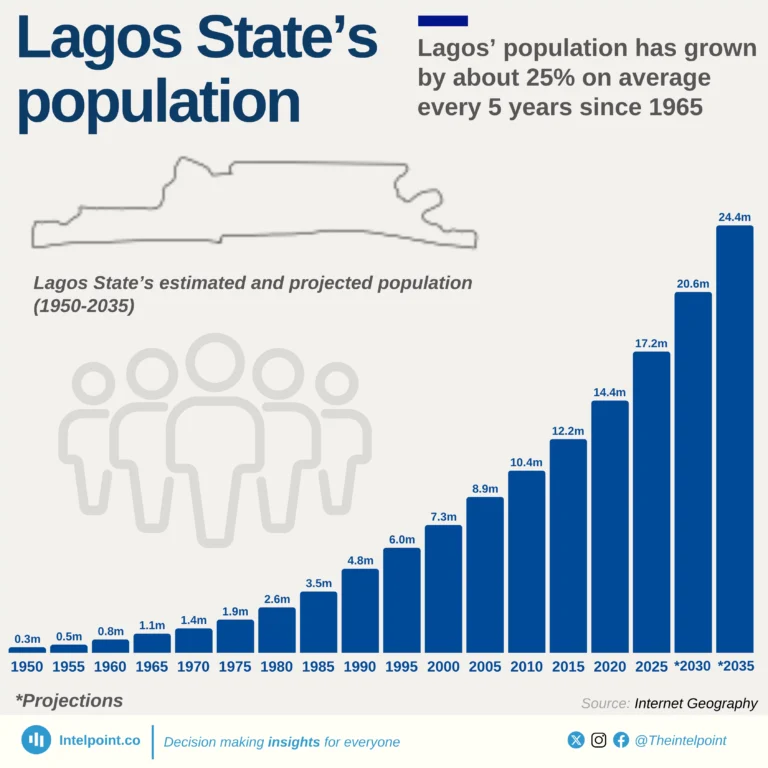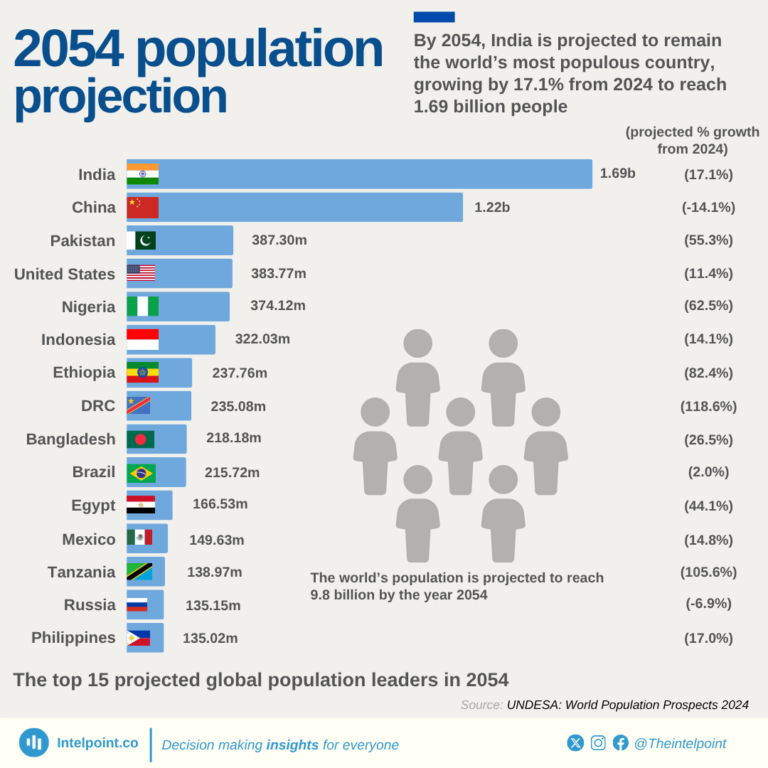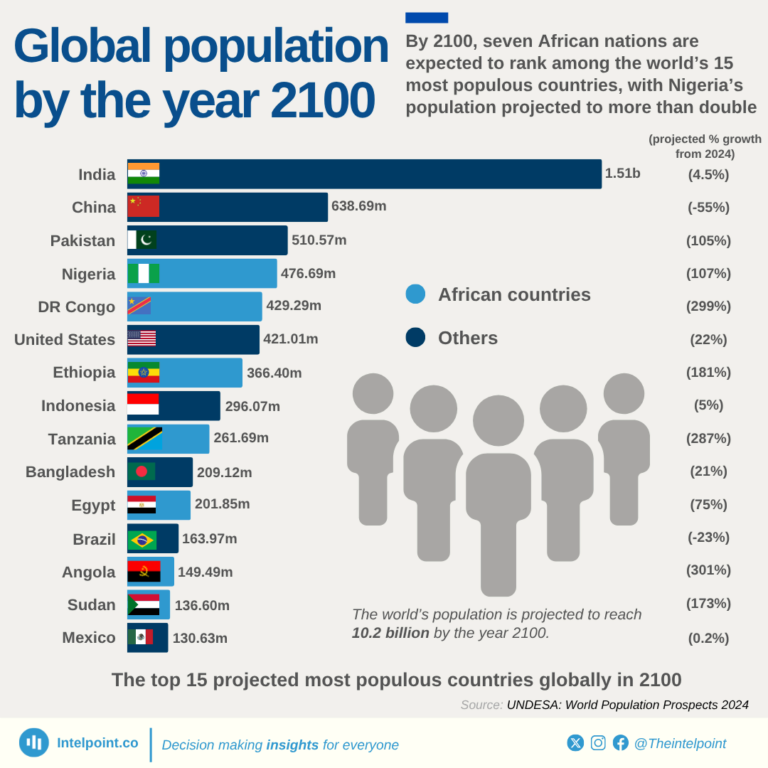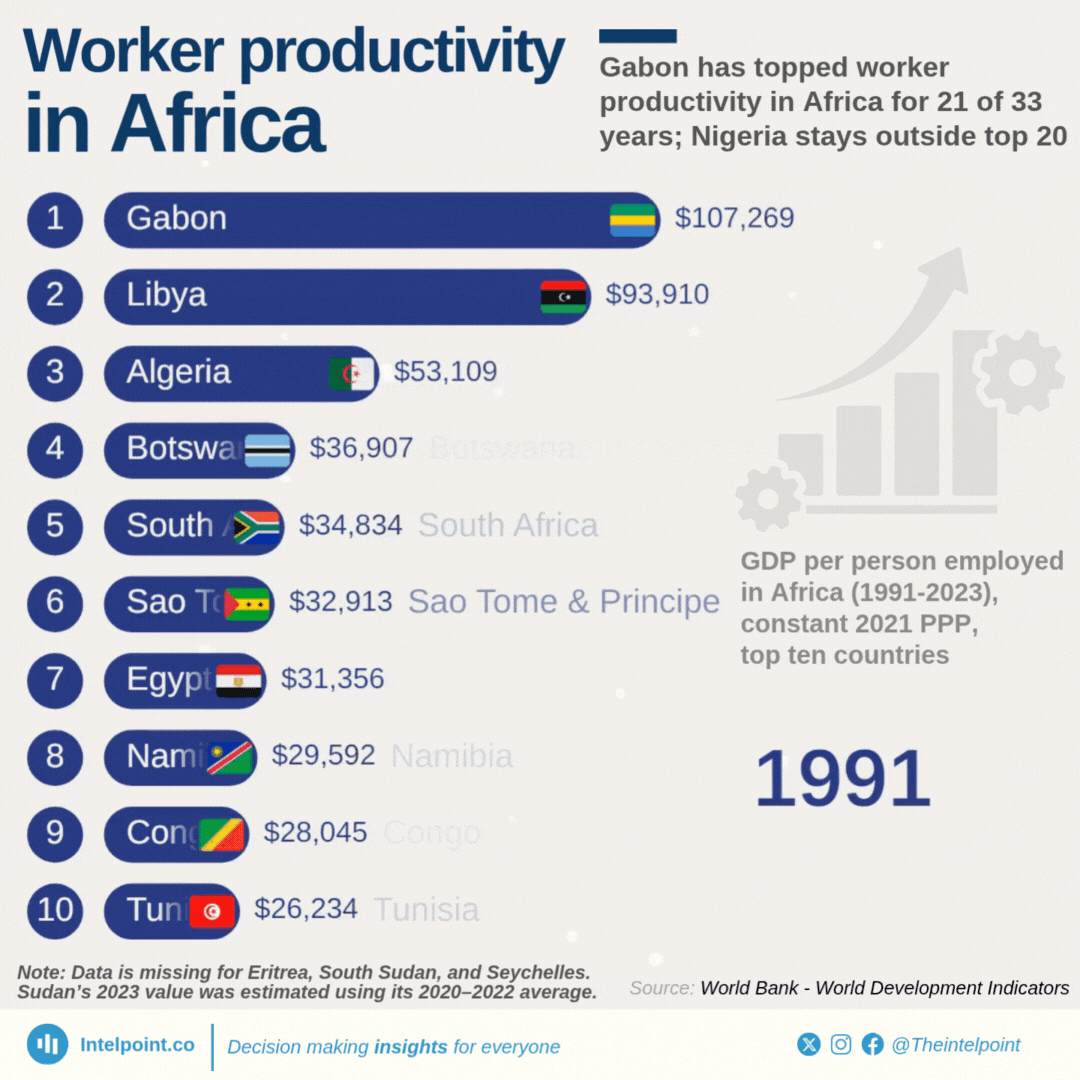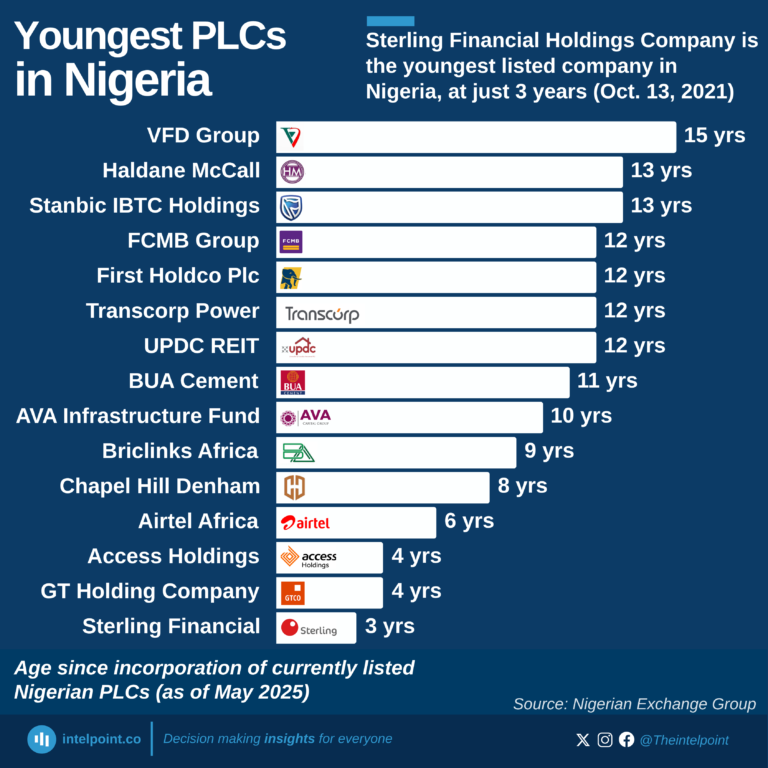
In 2023, a staggering ₦721 billion was paid as bribes to public officials in Nigeria, highlighting systemic corruption. Judges and magistrates received the highest average bribe of ₦31,000, reflecting the critical nature of their roles in decision-making processes. Immigration officers followed with an average of ₦17,800, while members of the armed forces received ₦16,600.

In 2023, bribery was increasingly being rejected in Nigeria, with 70% of Nigerians refusing to pay a bribe when asked to. Of these, 42% cited moral beliefs as the primary reason, while 21% opted for alternative methods to achieve their objectives, reflecting a growing resistance to corruption.

On a regional level, sub-Saharan Africa has the lowest average at 33, among 49 countries, while the Western Europe and European Union region outperforms all regions with an average of 65.
The Corruption Perception Index measures the perceived levels of corruption across countries and territories.

Inflation levels across Africa's largest economies range from low and stable in Morocco to high and concerning in Nigeria. Egypt and Nigeria have seen inflation rise to record levels, driven partly by currency devaluations in both countries.
Nigeria has not only fallen from its top spot as the continent's largest economy, but it now holds the spot for the highest inflation rate amongst the top ten economies by GDP.

While its inflation rate has decreased from 292% in April 2024 to 195% in October 2024, Argentina still has one of the highest inflation rates in the world.
This triple-digit inflation rate mirrors Argentina's hyperinflation crisis of the 1980s and 1990s when the country's inflation rose as high as 20,000%.
The Milei-led leadership has instituted reforms since taking office in December 2023, but there have been protests from the public over the resulting hardship.

Rwanda is performing relatively well in terms of governance and rule of law, leading sub-Saharan Africa for the third consecutive year with a score of 0.63 in the 2024 Rule of Law Index. Namibia (0.61) and Mauritius (0.60) closely follow, showcasing relatively stronger legal frameworks.
At the lower end, Nigeria, Congo, and Gabon score 0.40, highlighting persistent governance challenges.
Globally, Denmark tops the list of 142 countries, with a score of 0.90, while Venezuela ranks last at 0.26, emphasising the gap between SSA's highest performers and global leaders. This mix of progress and struggles illustrates the varied state of governance across the region.
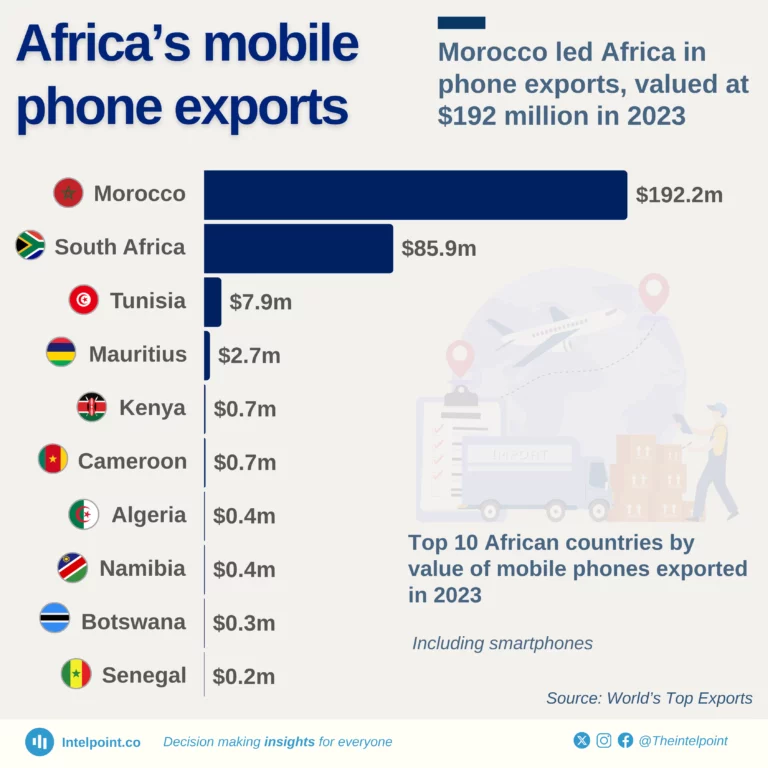
In 2023, Morocco led Africa’s phone export market with $192.2 million, making up 0.07% of the global total, followed by South Africa at $85.9 million, with a global share of 0.03%.
Though Tunisia, Mauritius, and Kenya contributed smaller shares, Tunisia’s remarkable 5,456% growth stands out, positioning it for greater involvement in the global market.
However, Mauritius and Kenya faced declines of -38% and -52%.
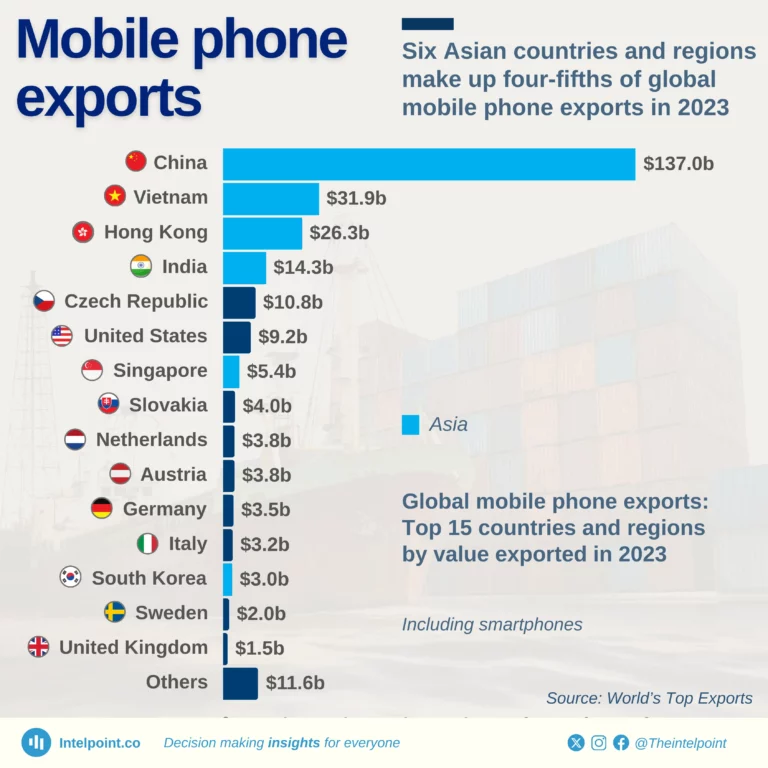
In 2023, the global mobile phone export market totalled $271.42 billion, with China dominating by accounting for $137 billion (50.5%) of total exports.
Vietnam, Hong Kong, and India complete the top four, accounting for 11.8%, 9.7%, and 5.3% of the total, respectively.
Six Asian countries and regions make up four-fifths of global mobile phone export value in 2023, showcasing the region's dominance in the industry.
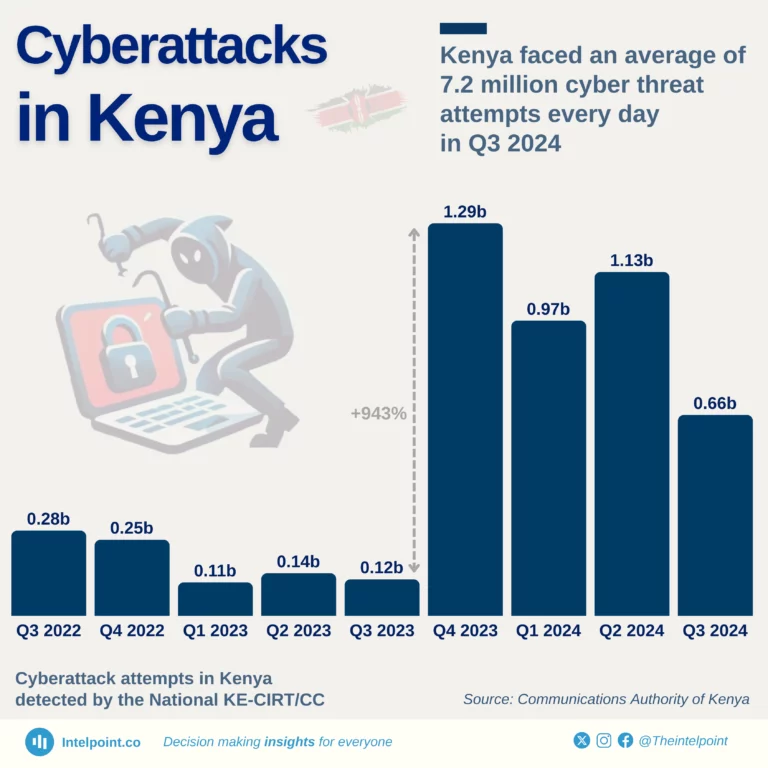
With rising global cyber threats, Kenya, one of Africa's Tier 1 cybersecurity countries (ITU classification), has recorded 2.76 billion cyber threats in the first nine months of 2024.
After a dramatic spike in Q4 2023 (+943%), cyber threats have dropped by 49% in Q3 2024 but remained significantly higher than five quarters ago. Threats rose again in Q2 (+17%) and then dropped in Q3 (-42%).
This surge in attacks led to a recent major breach, where a government agency’s data was sold on the dark web, highlighting the urgent need for stronger security measures.
What actions can Kenya and other countries take to improve their cybersecurity?
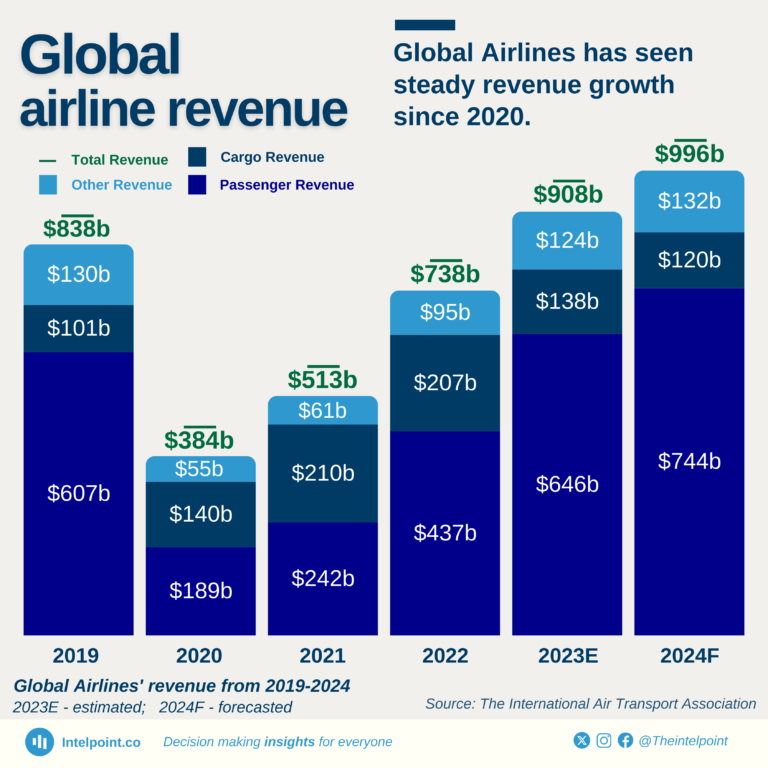
The International Civil Aviation Day is celebrated every year on December 7. Global Airlines experienced over 100% revenue growth from 2020 to 2023, with passenger revenue, the primary driver of this growth.
Cargo revenue has also contributed significantly to the overall increase. This shows the industry is recovering strongly from the pandemic. Notably, cargo revenue has experienced consistent growth since 2019; even during the COVID-19 pandemic, cargo revenue grew from $101b in 2019 to $140b in 2020.
The airline industry's future looks bright, with continued growth expected in the coming years as forecasted in 2024.
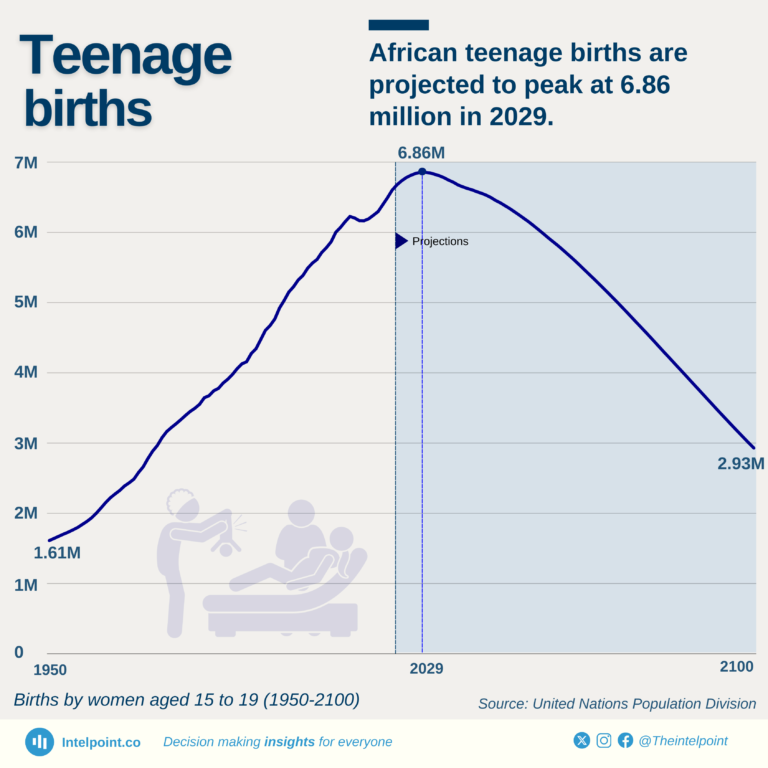
In many communities across Africa, young girls face societal pressures that often cut short their education and lead to early motherhood. Teenage births have consistently risen since 1950 but are projected to peak at 6.86 million in 2029, after which a gradual decline is expected. This projection, from the United Nations Population Division, offers hope for progress as efforts to empower young women and improve access to education and healthcare take root.
Note: Data for teenage births refers to women aged 15 to 19.
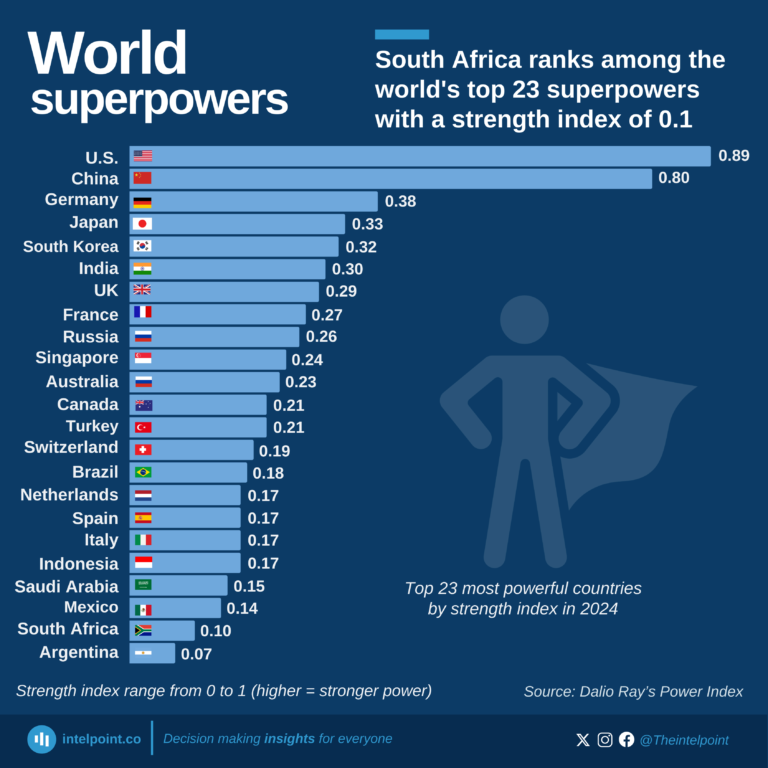
South Africa is rising on the global stage, showcasing its growing influence as it secures its spot as the only African country among the world's top 23 superpowers.
The United States leads with a strength index of 0.89, followed closely by China at 0.80. While traditional powers like Germany and Japan hold their ground, South Africa proudly stands among the top 23 superpowers with a strength index of 0.1. This is the only African country that made the top 23, coming 22nd on the list.
The ranking is based on analysis from Ray Dalio's Great Powers Index 2024. Dalio assessed each nation's strength based on a wide range of metrics, including education, innovation and technology, cost competitiveness, economic output, and military strength.
Note: The Eurozone, ranked third on the list, was removed as it cannot be considered a single country.
